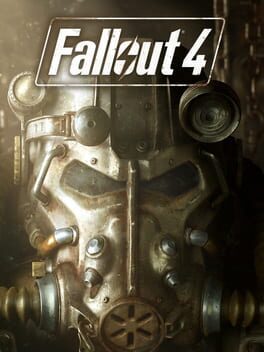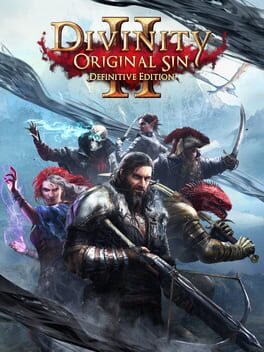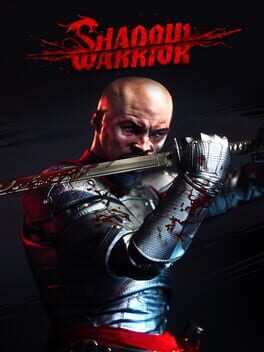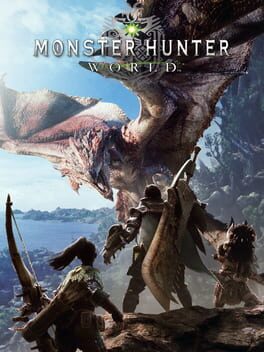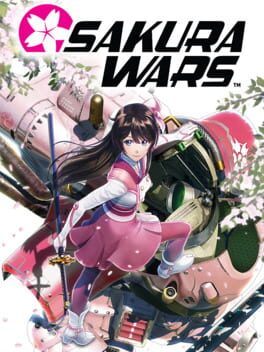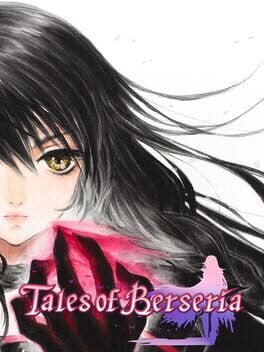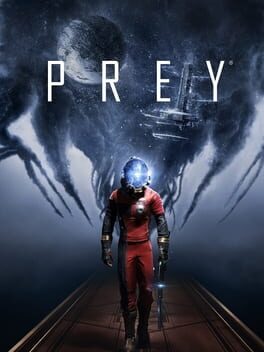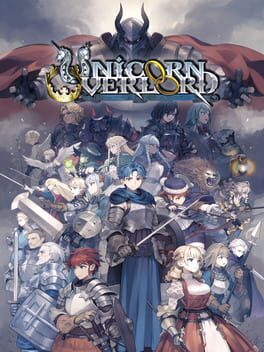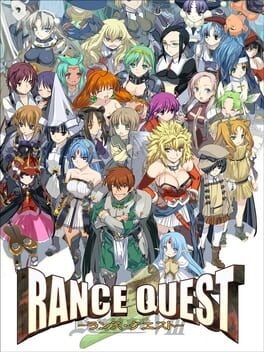chopSuey
2015
Fallout 4 takes the franchise in a direction reminiscent of Skyrim, with a hint of Borderlands thrown into the mix. However, comparing it directly to Skyrim proves challenging—while Fallout 4's gameplay may lack depth, its immersion factor is undeniable. It's not quite comparable to other open-world WRPGs like The Witcher 3 or Dragon Age: Origins; they're different beasts entirely. The Elder Scrolls series, including Skyrim, has a unique charm that Fallout 4 can't quite match.
Unfortunately, Fallout 4 falls short in several aspects, particularly its conflicts, events, quests, and the overall world-building. It feels more like playing an MMO at times, with side quests lacking depth and motivation. Quests often boil down to clearing out enemy bases without much narrative or plot development. For example, the Brotherhood of Steel's side quests can feel repetitive and uninspired, with little meaningful interaction beyond generic tasks and rewards.
Comparing this to Fallout: New Vegas, where even seemingly trivial tasks at the Mojave Outpost can reveal intricate plotlines and internal conflicts within factions, Fallout 4's quests feel lackluster. The rewards for completing quests often feel minimal, consisting mainly of a handful of caps that hardly seem worth the effort.
Even after just two hours of play, the flaws in Fallout 4's storytelling become apparent. The narrative structure feels disjointed, with abrupt transitions from major events to seemingly inconsequential tasks. The protagonist's rapid acquisition of power armor and defeating a Deathclaw with ease feels jarring and lacks the sense of progression seen in previous titles. Additionally, the perk system fails to resonate, lacking the depth and impact of its predecessors.
Overall, while Fallout 4 attempts to capture the essence of its predecessors while incorporating new elements, it ultimately falls short in delivering a cohesive and engaging experience. The game's shortcomings in storytelling, quest design, and progression hinder its ability to truly immerse players in the post-apocalyptic world of Fallout.
I recently completed Divinity: Original Sin 2 Definitive Edition after pouring over 100 hours into it. I started with a dual lonewolves build but eventually switched to a 4-party setup with Ifan, Lohse, Sabille, and Fane. The game proved to be challenging yet addicting—I played on classic difficulty but switched to explorer when Fort Joy became too daunting. The game heavily relies on player creativity, offering countless ways to overcome challenges, whether through strategic planning or clever cheese tactics like collecting oil barrels for upcoming fights or abusing teleportation.
One of the game's strengths is its freedom for respec, allowing me to experiment with different builds and synergies between party members. However, the equipment scaling issue—where finding gear appropriate for my level was a struggle due to random drops—and the flawed implementation of the crafting system were notable downsides.
I thoroughly enjoyed the game's lore, especially revelations about the truth behind the seven gods, the God King, Fane, demons, Lucian, and more. The morally gray characters and their desperate struggles added depth to the story, surpassing the original Divinity: Original Sin in my opinion. However, the game's narrative suffered due to limitations imposed by the player character's choices. For example, being unable to hear Fane's conversations with other Eternals within the same party felt like a missed opportunity.
The need to replay the game multiple times due to missed storylines related to non-party characters killed before Act 2 was frustrating. Additionally, the endings felt flat, reminiscent of Fallout slides but lacking the impact.
Despite its flaws, Divinity: Original Sin 2 Definitive Edition captures the essence of old-school RPGs with improved writing and storytelling. Its gameplay shines as one of the best in the turn-based genre, even if the narrative feels lacking at times.
2013
Honestly, I'm feeling somewhat drained from playing this game, much like my experience with Doom yesterday. The constant search for keys to unlock doors and the repetitive combat, where I ended up relying mostly on a sword, have left me feeling weary. Additionally, the lack of variety in enemies, especially the absence of mini-bosses or other challenges, contributes to the monotony.
And don't even get me started on the mobs in the final stage – what's up with that?
The only aspect that I find truly enjoyable is the witty banter and humor exchanged between Lo Wang and Hoji. Their interactions add a refreshing touch to an otherwise lackluster experience. Surprisingly, when the story takes a more serious turn, it actually becomes less engaging, further dampening my enthusiasm for the game.
And don't even get me started on the mobs in the final stage – what's up with that?
The only aspect that I find truly enjoyable is the witty banter and humor exchanged between Lo Wang and Hoji. Their interactions add a refreshing touch to an otherwise lackluster experience. Surprisingly, when the story takes a more serious turn, it actually becomes less engaging, further dampening my enthusiasm for the game.
2020
I grew to appreciate Cyberpunk when I explored other open-world games. Its world and atmosphere truly immerse you, evoking a sensation I hadn't felt since Skyrim, albeit in a futuristic setting. One major highlight is the exceptionally well-crafted and believable characters, a trademark of CD Projekt Red's storytelling prowess. Even in its early stages, the game demonstrated solidity, featuring intriguing gunfights and the option to pursue personally enjoyable hacking-focused builds.
However, it was the 2.0 adjustments and accompanying DLCs that truly elevated Cyberpunk to one of the best in its genre. The introduction of a gunfight-focused build added a thrilling pace to the gameplay, while the Phantom Liberty story arc rivaled, if not surpassed, the main storyline in depth and engagement. Although I found the base game's narrative somewhat lacking in replay value, prompting me to step away once the DLC concluded.
Looking ahead, I anticipate revisiting Cyberpunk's world in a few years, hoping to explore it anew with a different character build. It's a testament to the game's richly crafted universe and engaging gameplay that keeps drawing players back for more.
However, it was the 2.0 adjustments and accompanying DLCs that truly elevated Cyberpunk to one of the best in its genre. The introduction of a gunfight-focused build added a thrilling pace to the gameplay, while the Phantom Liberty story arc rivaled, if not surpassed, the main storyline in depth and engagement. Although I found the base game's narrative somewhat lacking in replay value, prompting me to step away once the DLC concluded.
Looking ahead, I anticipate revisiting Cyberpunk's world in a few years, hoping to explore it anew with a different character build. It's a testament to the game's richly crafted universe and engaging gameplay that keeps drawing players back for more.
Compared to other Monster Hunter games, Monster Hunter World embodies a profound essence in every aspect – whether it's the majestic monsters, the richly detailed world, or the exhilarating combat dynamics. Its gameplay loop is undeniably captivating: encounter a formidable monster, gather essential materials, craft necessary items to confront the beast, learn its intricate mechanics, emerge victorious through skillful execution, and then repeat the cycle with newfound challenges.
However, the post-game content can prove excessively challenging and somewhat monotonous when tackled solo. Furthermore, the multiplayer experience often devolves into a focus on pure damage output, lacking distinct dedicated roles despite the potential for such strategic depth.
Personally, I find the Guiding Lands content to be somewhat tiresome, resembling an endless grind devoid of clear direction or purpose.
Nevertheless, Monster Hunter World stands as one of the most exceptional gaming experiences I've ever had. Its immersive world, thrilling gameplay, and deep mechanics make it a standout title in the Monster Hunter series and in gaming as a whole.
However, the post-game content can prove excessively challenging and somewhat monotonous when tackled solo. Furthermore, the multiplayer experience often devolves into a focus on pure damage output, lacking distinct dedicated roles despite the potential for such strategic depth.
Personally, I find the Guiding Lands content to be somewhat tiresome, resembling an endless grind devoid of clear direction or purpose.
Nevertheless, Monster Hunter World stands as one of the most exceptional gaming experiences I've ever had. Its immersive world, thrilling gameplay, and deep mechanics make it a standout title in the Monster Hunter series and in gaming as a whole.
2019
Sakura Wars (2019) serves as a soft reboot with the theme of passing the torch to a new generation. Honestly, I found this game to be rather average, with characters that felt somewhat clichéd compared to the charm of the previous series (which I've only experienced through comics, to be fair). The action felt lackluster and somewhat like an afterthought, and there was quite a bit of filler content that dragged on, making it a bit challenging to finish. However, I must acknowledge that the game possesses charm and is rich in details, particularly in its 3D character designs, environments, music, scene direction, and other trivial elements that demonstrate the developers' love for the franchise. Looking towards the future, I hope this series doesn't end with just this game.
P.S.: I was particularly bothered by the variety in character design here. It reminded me of Ao no Kiseki when they used character designs by Katsumi Enami from the previous series alongside new designs by Falcom's in-house artists, which felt somewhat jarring. A similar situation occurred here, with Tite Kubo handling the main cast while other characters had distinct designs, diverging from Kubo's artistic style. Additionally, the bromide system still evokes nostalgia with Kōsuke Fujishima's designs.
My Score: 7/10
P.S.: I was particularly bothered by the variety in character design here. It reminded me of Ao no Kiseki when they used character designs by Katsumi Enami from the previous series alongside new designs by Falcom's in-house artists, which felt somewhat jarring. A similar situation occurred here, with Tite Kubo handling the main cast while other characters had distinct designs, diverging from Kubo's artistic style. Additionally, the bromide system still evokes nostalgia with Kōsuke Fujishima's designs.
My Score: 7/10
2018
Hades was completed in over 20 hours (plus, I once spent a whole day without internet, unsure if it counted towards gameplay hours or not), but I'm confident that dedicated players could extract 30-50 hours of content from it. For a rogue-like, this marks the first time I've played a game where the story and characters take precedence over the gameplay loop.
Some insights from my playthrough:
+ The story starts with a metal vibe but ultimately delves into family drama, which I found quite compelling.
+ The action is swift-paced and visually satisfying.
+ The array of weapons and boons ensures that each loop feels distinct, akin to typical rogue-like games. If I were to draw a comparison, it's reminiscent of Wizard of Legend.
+ Upon defeating Hades for the first time, the Pact of Punishment introduces additional challenges and gameplay variations. Extreme Measure, in particular, alters boss encounters, adding depth to the experience.
+ Every loop, regardless of victory or defeat, presents intriguing dialogues from each character, offering insights into their lives and struggles. Sometimes, I found myself playing solely to witness the fate of characters like Orpheus and Eurydice or to observe the romance between the main character and Megaera.
+ The game is rich in detail, from character reactions to carried items to subtle arena elements during boss fights, which enrich the overall experience.
+ The music is exceptional, with tracks like "In The Blood," "Lament of Orpheus," and "Good Riddance" standing out. Supergiant Games consistently delivers in the music department.
= For those seeking a more narrative-focused experience, the game offers God Mode (a discovery I made towards the end), significantly reducing enemy damage without compromising the challenge.
= Additionally, there's an option to "give up," automatically recovering any losses incurred during a run. Although I personally never utilized this feature, it could be beneficial for those facing particularly challenging runs.
- While initially engaging, the game can become frustrating if its charm fails to resonate. Repetitive encounters with familiar enemies and areas can lead to boredom, despite the Pact of Punishment's attempt to inject excitement.
- After defeating Hades multiple times, I found myself growing weary of experimentation. Certain weapon and boon combinations became exploitable, and boss patterns became predictable. Increasing Extreme Measure's difficulty could mitigate this, injecting fresh challenges into boss encounters.
- Events in the game can feel somewhat reliant on RNG. Encountering characters like Eurydice or obtaining secret weapons is not guaranteed, and even accessing the epilogue post-True Ending is subject to RNG.
Objectively evaluating Hades as a rogue-like game, it excels in all aspects, boasting polished gameplay, detailed world-building, outstanding music, and compelling storytelling. However, despite its many strengths, the magic of each loop gradually waned for me, culminating in a somewhat exhausting experience upon completing Hades with level 3 extreme measure. At that point, I even contemplated taking a break from the genre, but eventually, the game's allure proved too strong to resist.
My Score: 75/100.
Some insights from my playthrough:
+ The story starts with a metal vibe but ultimately delves into family drama, which I found quite compelling.
+ The action is swift-paced and visually satisfying.
+ The array of weapons and boons ensures that each loop feels distinct, akin to typical rogue-like games. If I were to draw a comparison, it's reminiscent of Wizard of Legend.
+ Upon defeating Hades for the first time, the Pact of Punishment introduces additional challenges and gameplay variations. Extreme Measure, in particular, alters boss encounters, adding depth to the experience.
+ Every loop, regardless of victory or defeat, presents intriguing dialogues from each character, offering insights into their lives and struggles. Sometimes, I found myself playing solely to witness the fate of characters like Orpheus and Eurydice or to observe the romance between the main character and Megaera.
+ The game is rich in detail, from character reactions to carried items to subtle arena elements during boss fights, which enrich the overall experience.
+ The music is exceptional, with tracks like "In The Blood," "Lament of Orpheus," and "Good Riddance" standing out. Supergiant Games consistently delivers in the music department.
= For those seeking a more narrative-focused experience, the game offers God Mode (a discovery I made towards the end), significantly reducing enemy damage without compromising the challenge.
= Additionally, there's an option to "give up," automatically recovering any losses incurred during a run. Although I personally never utilized this feature, it could be beneficial for those facing particularly challenging runs.
- While initially engaging, the game can become frustrating if its charm fails to resonate. Repetitive encounters with familiar enemies and areas can lead to boredom, despite the Pact of Punishment's attempt to inject excitement.
- After defeating Hades multiple times, I found myself growing weary of experimentation. Certain weapon and boon combinations became exploitable, and boss patterns became predictable. Increasing Extreme Measure's difficulty could mitigate this, injecting fresh challenges into boss encounters.
- Events in the game can feel somewhat reliant on RNG. Encountering characters like Eurydice or obtaining secret weapons is not guaranteed, and even accessing the epilogue post-True Ending is subject to RNG.
Objectively evaluating Hades as a rogue-like game, it excels in all aspects, boasting polished gameplay, detailed world-building, outstanding music, and compelling storytelling. However, despite its many strengths, the magic of each loop gradually waned for me, culminating in a somewhat exhausting experience upon completing Hades with level 3 extreme measure. At that point, I even contemplated taking a break from the genre, but eventually, the game's allure proved too strong to resist.
My Score: 75/100.
46 hours. The game got me hooked badly, but honestly, I got bored halfway through. The long travel time from point A to B, the shrines requiring puzzles beforehand (which can take 5 - 15 minutes if your brain isn't sharp), and the repetitive nature of the shrines themselves, not quite like dungeons or anything. The lack of enemy variation is also a major downside for me, and I think the biggest minus is giving legendary weapons or shields that can break (imagine the Hyrule shield breaking!). Also, I hate that buffs don't stack (there should be a separation between which buffs can and cannot stack). Imagine I'm using a buff to stay warm, then I eat something that gives me another buff (like attack++), and the warm buff disappears.
But it's the golden standard for exploration games. For instance, when you're traveling from point A to B, you check the map, and there's a location that looks interesting. You decide to visit that spot, and there's always something happening, a chest, etc., that truly rewards your exploration in this game. It makes the open-world feel rich with content.
In terms of difficulty, the game felt challenging at the beginning, but there are many exploits as you progress. Fairies can be stacked for multiple revives (even without Mipha), and I like crafting food because it's easy to make and the buffs are quite broken (perhaps that's why they can't be stacked). During boss fights, with full stamina, just two laps, slow motion, and spamming elemental arrows can kill the boss in minutes, even the final boss feels underwhelming. As a casual player, I don't have a problem with these exploits.
As for the story... I actually like the concept. It starts off bleakly. Zelda, desperate to activate her powers and resenting her destiny, Link as a failed savior, and the backstory of the champions who lost their lives. A hundred years later, it feels like saving the world for whom, when the kingdom and loved ones are already gone? The start is just so tragic. Unfortunately, I didn't feel very connected or moved by it because it's told in random flashbacks, making the chronology messy (unless you use a walkthrough).
There's still plenty of content like the DLC story Champion's Song (which I found ridiculously difficult, to be honest, it's where I truly felt the challenge), dozens of unexplored shrines, and more that could take hundreds of hours to complete all the content. But I'm not really interested in 100% completion; maybe if I'm bored and there's no other game, I'll try out some of the side content.
My Score: 8/10.
But it's the golden standard for exploration games. For instance, when you're traveling from point A to B, you check the map, and there's a location that looks interesting. You decide to visit that spot, and there's always something happening, a chest, etc., that truly rewards your exploration in this game. It makes the open-world feel rich with content.
In terms of difficulty, the game felt challenging at the beginning, but there are many exploits as you progress. Fairies can be stacked for multiple revives (even without Mipha), and I like crafting food because it's easy to make and the buffs are quite broken (perhaps that's why they can't be stacked). During boss fights, with full stamina, just two laps, slow motion, and spamming elemental arrows can kill the boss in minutes, even the final boss feels underwhelming. As a casual player, I don't have a problem with these exploits.
As for the story... I actually like the concept. It starts off bleakly. Zelda, desperate to activate her powers and resenting her destiny, Link as a failed savior, and the backstory of the champions who lost their lives. A hundred years later, it feels like saving the world for whom, when the kingdom and loved ones are already gone? The start is just so tragic. Unfortunately, I didn't feel very connected or moved by it because it's told in random flashbacks, making the chronology messy (unless you use a walkthrough).
There's still plenty of content like the DLC story Champion's Song (which I found ridiculously difficult, to be honest, it's where I truly felt the challenge), dozens of unexplored shrines, and more that could take hundreds of hours to complete all the content. But I'm not really interested in 100% completion; maybe if I'm bored and there's no other game, I'll try out some of the side content.
My Score: 8/10.
2016
Tales of Berseria, 70 hours played, although it's 90 hours on Steam due to occasional interruptions such as meetings and sometimes falling asleep when I planned to finish it over the weekend.
I distinctly remember playing Tales of Zestiria during my college days, and it's the only JRPG I intentionally dropped midway through. I despised the cast, the story, and its execution, finding it so cringe-worthy and boring that I often found myself banging my head on the table. However, a few months ago, I decided to purchase Berseria on a whim since it was on sale. To my surprise, I got hooked on the story immediately, playing for 20 hours straight without switching games, and I couldn't believe it was crafted by the same team and writer.
Tales of Berseria boasts a strong story and cast, possibly one of the best in the Tales series based on my experience. It's refreshing to play as a protagonist who isn't purely good from the start, with significant character development potential. The pacing and execution are spot-on, making it thoroughly enjoyable. The game is also incredibly emotional, taking us on a rollercoaster of emotions, from tearful moments to mind-bending twists and hilarious scenes, all perfectly balanced in tempo. Velvet's character is psychologically and morally complex, especially as her revenge motive is questioned, making her fascinating to play. Even the antagonists are portrayed sympathetically towards the end.
Unfortunately, the game's strengths lie primarily in its story and characters. The gameplay is decent, with AI that's an improvement over Zestiria but not particularly engaging to delve into further. Playing as Velvet on hard difficulty feels effortless, so there's little incentive to learn the intricacies of other characters' gameplay. Equipment management and modification are simpler than Zestiria but still cumbersome and tiring to deal with. The most disappointing aspect is the weak setting and environment. It's even worse than Zestiria; I didn't feel like the world of Berseria truly came alive, felt real, or was believable. The world-building is lacking, and the blandness of each dungeon, major city, etc., fails to evoke any sense of wonder. Despite the need for constant backtracking to familiar locations, there's no "wow" factor while playing. The music is also forgettable, a significant downside compared to Zestiria.
Overall, I'm more of a story-driven person who prefers reading visual novels for hours rather than playing games with minimal or poor storytelling. Berseria, however, satisfied me in terms of its narrative, although I must admit I wasn't too fond of the ending.
My score: 4/5.
P.S. Learn the Mystic Chain art (spam R2 and d-pad during Mystic Art) that the game never tells you about; it makes boss fights a breeze.
I distinctly remember playing Tales of Zestiria during my college days, and it's the only JRPG I intentionally dropped midway through. I despised the cast, the story, and its execution, finding it so cringe-worthy and boring that I often found myself banging my head on the table. However, a few months ago, I decided to purchase Berseria on a whim since it was on sale. To my surprise, I got hooked on the story immediately, playing for 20 hours straight without switching games, and I couldn't believe it was crafted by the same team and writer.
Tales of Berseria boasts a strong story and cast, possibly one of the best in the Tales series based on my experience. It's refreshing to play as a protagonist who isn't purely good from the start, with significant character development potential. The pacing and execution are spot-on, making it thoroughly enjoyable. The game is also incredibly emotional, taking us on a rollercoaster of emotions, from tearful moments to mind-bending twists and hilarious scenes, all perfectly balanced in tempo. Velvet's character is psychologically and morally complex, especially as her revenge motive is questioned, making her fascinating to play. Even the antagonists are portrayed sympathetically towards the end.
Unfortunately, the game's strengths lie primarily in its story and characters. The gameplay is decent, with AI that's an improvement over Zestiria but not particularly engaging to delve into further. Playing as Velvet on hard difficulty feels effortless, so there's little incentive to learn the intricacies of other characters' gameplay. Equipment management and modification are simpler than Zestiria but still cumbersome and tiring to deal with. The most disappointing aspect is the weak setting and environment. It's even worse than Zestiria; I didn't feel like the world of Berseria truly came alive, felt real, or was believable. The world-building is lacking, and the blandness of each dungeon, major city, etc., fails to evoke any sense of wonder. Despite the need for constant backtracking to familiar locations, there's no "wow" factor while playing. The music is also forgettable, a significant downside compared to Zestiria.
Overall, I'm more of a story-driven person who prefers reading visual novels for hours rather than playing games with minimal or poor storytelling. Berseria, however, satisfied me in terms of its narrative, although I must admit I wasn't too fond of the ending.
My score: 4/5.
P.S. Learn the Mystic Chain art (spam R2 and d-pad during Mystic Art) that the game never tells you about; it makes boss fights a breeze.
2019
Short Review of Control: Completed in 27 hours, All Side Quests, DLC AWE and The Foundation
The beginning was frustrating, but the game gradually became addictive, especially from a combat perspective. Some set-pieces and segments are truly artistic (like the Ashtray Maze and Altered Item quest). The world lore is fascinating, and I appreciate the David Lynch-style dialogue and characterizations. However, the ending of the main story felt a bit underwhelming, leaving me with a sense of 'Is that it?' Instead, it was the second DLC that provided a proper ending segment.
Overall, I'd give it a 7.5/10.
The beginning was frustrating, but the game gradually became addictive, especially from a combat perspective. Some set-pieces and segments are truly artistic (like the Ashtray Maze and Altered Item quest). The world lore is fascinating, and I appreciate the David Lynch-style dialogue and characterizations. However, the ending of the main story felt a bit underwhelming, leaving me with a sense of 'Is that it?' Instead, it was the second DLC that provided a proper ending segment.
Overall, I'd give it a 7.5/10.
2017
Prey (2017) wraps up after 23 hours on PS4. Its gameplay stands out as the gem of the experience, drastically transforming your playstyle and strategies from slow-mo gunfights to embodying a fascinating alien persona, stealth mechanics (which are surprisingly engaging), to full-on brawls, among others, making other RPGs pale in comparison. The simple deconstruction and crafting system is also noteworthy. Its top-notch level design allows for non-linear approaches, rewarding experimentation that often feels ingenious.
However, the game does have a couple of significant issues that prevent it from shining brightly. Firstly, its backtracking system is flawed, with long loading times between hubs and unenjoyable fast travel mechanics that involve floating through space to find an airlock, leading to excessive backtracking. Moreover, some side objectives cannot be completed immediately, requiring you to wait for story developments or consult guides to know when they become accessible, which can be mentally taxing.
Secondly, its enemies lack iconicity. For a game inspired by titles like System Shock and Bioshock, one would expect memorable adversaries akin to SHODAN or Big Daddies. However, Prey only offers Typhoons, typical formless alien entities and their variants, lacking a definitive antagonist and resulting in a somewhat forgettable experience.
Other than that, the game's difficulty curve is uneven, starting off challenging and frustrating, becoming too easy towards the end once you're fully equipped with neuromods, chips, and an arsenal of weapons. The game's best moments are found in the mid-game, and its gunplay, while serviceable, lacks the impact expected in an FPS, with weapons feeling somewhat underwhelming.
My score: 3.5/5. (Would have given 4, but oh, the dreaded backtracking with loading screens).
However, the game does have a couple of significant issues that prevent it from shining brightly. Firstly, its backtracking system is flawed, with long loading times between hubs and unenjoyable fast travel mechanics that involve floating through space to find an airlock, leading to excessive backtracking. Moreover, some side objectives cannot be completed immediately, requiring you to wait for story developments or consult guides to know when they become accessible, which can be mentally taxing.
Secondly, its enemies lack iconicity. For a game inspired by titles like System Shock and Bioshock, one would expect memorable adversaries akin to SHODAN or Big Daddies. However, Prey only offers Typhoons, typical formless alien entities and their variants, lacking a definitive antagonist and resulting in a somewhat forgettable experience.
Other than that, the game's difficulty curve is uneven, starting off challenging and frustrating, becoming too easy towards the end once you're fully equipped with neuromods, chips, and an arsenal of weapons. The game's best moments are found in the mid-game, and its gunplay, while serviceable, lacks the impact expected in an FPS, with weapons feeling somewhat underwhelming.
My score: 3.5/5. (Would have given 4, but oh, the dreaded backtracking with loading screens).
2024
Completed Unicorn Overlord, 43 hours in, on normal difficulty, finished post-game side quests, explored 100% of the map, and somehow managed to recruit the missable character at the end.
The developer seems to be a fan of Ogre Battle and pondered how to bring Ogre Battle gameplay into the modern world. They sped up the gameplay, improved the quality of life, and added more anime girls. No wonder Yasumi Matsuno (the creator of Ogre Battle) invited people on Twitter to buy the game, hoping Square Enix would realize there's a market for this genre and remake Ogre Battle (SNES) and Ogre Battle 64.
I slowly grew to like the character designs, and the gameplay loop got me hooked. The preparation feels like tuning a car in a racing game, constantly swapping components to fit the situation of the arena and opponents, from formations to unit roles, weapons, and accessories with additional skills, even setting up gambit-like strategies for skill usage that can drastically turn a losing situation into a victory. The game itself is quite easy, especially with the universal item access and lack of delay in item usage, which I find quite broken (additional note: formations can be adjusted when withdrawing, which helps when NPCs become part of the crew, and weapons can be changed mid-game!). And what I liked the most in this game is that grinding is easy; trials can be spammed, exp books are given, and grinding during battles feels satisfying in terms of progress, although I feel there's a level cap.
The rest, in my opinion, is average. The story and writing are below standard, with many unexplored potentials here and there, which is surprising considering how amazing 13 Sentinels was (and apparently, they were developed in parallel, so it seems they had different writing teams). The music isn't memorable, although there are some good OSTs during the prologue/final boss stages. It's funny because Hitoshi Sakimoto (Ogre series, FFT & 12) was the lead composer in 13 Sentinels, but not here (although it's still Basiscape, Hitoshi's company, that's handling it). For a war game, I feel the enemies are too passive, watching us snowballing until the end. And this passiveness is also felt in the game, as when we can station guards in towns, it turns out to be just for collecting resources around the town without any resistance/invasion from enemies. As for resources, they're mostly for delivery, and the only resource I find worth collecting is Fevrite, which makes all weapons in the game relevant in the late game.
I think a big minus is also the choices that are too black and white, kill or mercy? If you kill, you sometimes get a reward, but with mercy, you definitely get a unit. So, mercy it is! This is without any interesting consequences to the story, etc., something I was really hoping for when I first played the demo.
Despite the drawbacks, this game is full of charm, and I truly got addicted to playing it nonstop until I finished it during the holidays, which rarely happens. My score: 8/10.
The developer seems to be a fan of Ogre Battle and pondered how to bring Ogre Battle gameplay into the modern world. They sped up the gameplay, improved the quality of life, and added more anime girls. No wonder Yasumi Matsuno (the creator of Ogre Battle) invited people on Twitter to buy the game, hoping Square Enix would realize there's a market for this genre and remake Ogre Battle (SNES) and Ogre Battle 64.
I slowly grew to like the character designs, and the gameplay loop got me hooked. The preparation feels like tuning a car in a racing game, constantly swapping components to fit the situation of the arena and opponents, from formations to unit roles, weapons, and accessories with additional skills, even setting up gambit-like strategies for skill usage that can drastically turn a losing situation into a victory. The game itself is quite easy, especially with the universal item access and lack of delay in item usage, which I find quite broken (additional note: formations can be adjusted when withdrawing, which helps when NPCs become part of the crew, and weapons can be changed mid-game!). And what I liked the most in this game is that grinding is easy; trials can be spammed, exp books are given, and grinding during battles feels satisfying in terms of progress, although I feel there's a level cap.
The rest, in my opinion, is average. The story and writing are below standard, with many unexplored potentials here and there, which is surprising considering how amazing 13 Sentinels was (and apparently, they were developed in parallel, so it seems they had different writing teams). The music isn't memorable, although there are some good OSTs during the prologue/final boss stages. It's funny because Hitoshi Sakimoto (Ogre series, FFT & 12) was the lead composer in 13 Sentinels, but not here (although it's still Basiscape, Hitoshi's company, that's handling it). For a war game, I feel the enemies are too passive, watching us snowballing until the end. And this passiveness is also felt in the game, as when we can station guards in towns, it turns out to be just for collecting resources around the town without any resistance/invasion from enemies. As for resources, they're mostly for delivery, and the only resource I find worth collecting is Fevrite, which makes all weapons in the game relevant in the late game.
I think a big minus is also the choices that are too black and white, kill or mercy? If you kill, you sometimes get a reward, but with mercy, you definitely get a unit. So, mercy it is! This is without any interesting consequences to the story, etc., something I was really hoping for when I first played the demo.
Despite the drawbacks, this game is full of charm, and I truly got addicted to playing it nonstop until I finished it during the holidays, which rarely happens. My score: 8/10.
"No more shall man have wings to bear him to Paradise. Henceforth, he shall walk."
"As fragmented, imperfect beings, yours is a never-ending quest.
A quest to find your purpose, knowing your end is assured.
To find the strength to continue, when all strength has left you.
To find joy, even as darkness descends...
...and amidst deepest despair, light everlasting."
"As fragmented, imperfect beings, yours is a never-ending quest.
A quest to find your purpose, knowing your end is assured.
To find the strength to continue, when all strength has left you.
To find joy, even as darkness descends...
...and amidst deepest despair, light everlasting."
2023
Completed FF XVI.
After looking at FF 14, I consider XVI to be the type that learns from the mistakes of its predecessors (FF 13, FF 15), incorporating what works in the current gaming industry while focusing on aspects that core fans desire, elevating them to over-the-top levels as goals, rather than just adding too much without delivering. Ultimately, when discussing core gameplay, character moments, lore, spectacle, and music, FF XVI stands out as one of the best in the series.
+ The Eikon fights are mind-blowing spectacles. The grandeur they present makes FF XVI the pinnacle of the entire FF series in this aspect. I'd even go as far as to say that experiencing this game on PS5 is a must for the Eikon scenes alone.
+ The music is an eargasmic experience. I've been listening to FF 14's OST daily, and in FF XVI, Soken has truly taken it to the next level. If the album were to be released, I'd definitely buy it.
+ The action is enjoyable, solid, and satisfying. The skill rotation is relatively easy, the parrying feels smooth, and staggering combos can deal hundreds of thousands of damage. As someone who isn't a fan of the action genre, I find the gameplay quite solid. The accessories also greatly enhance the game's accessibility, even though the game itself is quite manageable without them.
+ I like the characters, especially Clive, whose voice acting deserves commendation. Jill, Cid, Mid, and even the NPCs are all well-written.
+ The character moments are well-executed. They all deliver exceptionally well. The ending is tear-jerking, and I'm quite satisfied with the impact that Clive's actions have shown after the credits.
+ Torgal, the good boy.
= I honestly don't mind some characters being underexplored, but I hope there will be DLCs addressing the relationships between Cid, Barnabas, and Benedikta.
- I still feel that FFT and Tactics Ogre are the true mature RPGs from SE (outside of the aspects of sex and blood). The political intrigue in FF XVI feels shallow and gimmicky, lacking dynamism.
- The hate crime bearer isn't relatable, and its message regarding slavery seems to miss the point. The game also mishandles this theme and how it's used as a narrative motivator. I have my own thoughts on this matter.
- The story's motivations feel somewhat messy and lacking depth, with some reveals discarding interesting aspects of the story's motivations.
- The sidequests... 😪 but you miss out on a lot if you don't follow them, especially towards the end. I even had to turn off my PS when I was hyped to face the final boss, just to complete them.
- Many elements feel like they're just ticking the checkboxes of modern RPGs, such as side quests, item shops, world areas, crafting, equipment, evolving hideouts, etc., which I believe have a lot of potential but aren't taken seriously.
Overall, I consider FF XVI to be one of the best FF games I've ever played, though my list may be unique (currently, my top four are FFT, FF XIV, FFXVI, and FFXII, with the development teams being related to one another). In my opinion, this game is a must-play if you own a PS5; it's a spectacle that I haven't experienced since Shadow of the Colossus and God of War 3.
My rating: 4/5.
After looking at FF 14, I consider XVI to be the type that learns from the mistakes of its predecessors (FF 13, FF 15), incorporating what works in the current gaming industry while focusing on aspects that core fans desire, elevating them to over-the-top levels as goals, rather than just adding too much without delivering. Ultimately, when discussing core gameplay, character moments, lore, spectacle, and music, FF XVI stands out as one of the best in the series.
+ The Eikon fights are mind-blowing spectacles. The grandeur they present makes FF XVI the pinnacle of the entire FF series in this aspect. I'd even go as far as to say that experiencing this game on PS5 is a must for the Eikon scenes alone.
+ The music is an eargasmic experience. I've been listening to FF 14's OST daily, and in FF XVI, Soken has truly taken it to the next level. If the album were to be released, I'd definitely buy it.
+ The action is enjoyable, solid, and satisfying. The skill rotation is relatively easy, the parrying feels smooth, and staggering combos can deal hundreds of thousands of damage. As someone who isn't a fan of the action genre, I find the gameplay quite solid. The accessories also greatly enhance the game's accessibility, even though the game itself is quite manageable without them.
+ I like the characters, especially Clive, whose voice acting deserves commendation. Jill, Cid, Mid, and even the NPCs are all well-written.
+ The character moments are well-executed. They all deliver exceptionally well. The ending is tear-jerking, and I'm quite satisfied with the impact that Clive's actions have shown after the credits.
+ Torgal, the good boy.
= I honestly don't mind some characters being underexplored, but I hope there will be DLCs addressing the relationships between Cid, Barnabas, and Benedikta.
- I still feel that FFT and Tactics Ogre are the true mature RPGs from SE (outside of the aspects of sex and blood). The political intrigue in FF XVI feels shallow and gimmicky, lacking dynamism.
- The hate crime bearer isn't relatable, and its message regarding slavery seems to miss the point. The game also mishandles this theme and how it's used as a narrative motivator. I have my own thoughts on this matter.
- The story's motivations feel somewhat messy and lacking depth, with some reveals discarding interesting aspects of the story's motivations.
- The sidequests... 😪 but you miss out on a lot if you don't follow them, especially towards the end. I even had to turn off my PS when I was hyped to face the final boss, just to complete them.
- Many elements feel like they're just ticking the checkboxes of modern RPGs, such as side quests, item shops, world areas, crafting, equipment, evolving hideouts, etc., which I believe have a lot of potential but aren't taken seriously.
Overall, I consider FF XVI to be one of the best FF games I've ever played, though my list may be unique (currently, my top four are FFT, FF XIV, FFXVI, and FFXII, with the development teams being related to one another). In my opinion, this game is a must-play if you own a PS5; it's a spectacle that I haven't experienced since Shadow of the Colossus and God of War 3.
My rating: 4/5.
2011
Finished Rance Quest. Honestly, in terms of gameplay, it's lackluster, and the post-game content doesn't match up to the sixth installment (or maybe because I cleared all the side content before finishing the game).
I'll list the points as I'm feeling a bit lazy to write neatly:
+ Rance Quest features a plethora of characters from the entire Rance series.
+ It's a significant series for me due to the lore development, particularly the insights into the nature of the Rance world and the introduction of the character Crook (though already explored in Kichikuou Rance, this is the canon version).
+ Rance is portrayed in a more humane light here, especially with his adorable daughter, Reset. The wholesome moments whenever she appears are delightful.
+ While the artwork might not be as stunning as Sengoku, it's still one of the best eroge in terms of visual CGs and character designs that I've come across.
= The castle events (yes, Rance has a castle here) that you can access after completing quests (and later there's a moment where you don't need to quest anymore), along with the random events in the town with a slice-of-life vibe post-quest, featuring random characters. Initially enjoyable as we get to interact with our party, but with dozens, even hundreds of characters, clicking through their events gets tiresome when you just want to finish quickly.
= The gameplay is basic, similar to the sixth installment, a dungeon crawler with skill points, but viewed from the top rather than the RPG-style ala Might and Magic in the sixth series. It's a matter of taste; personally, I'm not a fan.
- The quests are of the "take whatever you want as long as the main requirement is met" type. Most of them are comedic, but the main story events are quite linear, which I consider a step backward from Sengoku Rance.
- There are hundreds of quests with unclear quality. Sometimes they deliver humorously, sometimes they're just random and silly.
- There's a lack of new memorable characters. Sachiko, the new sidekick, is meant to replace Sill, but in my opinion, she doesn't quite fill the gap.
- There's no grand-scale plot that truly stands out here; the conflicts feel small compared to what we experienced in the sixth and seventh installments. Even though there are two significant plots intertwined (Rance Quest and the Magnum main story), the conflicts still feel minor.
- I found the antagonists to be underwhelming, with minimal presence throughout the story. Their characterization and plot execution when their actions are revealed also felt lacking.
- Half of the game lacks any impactful moments, the Kalar story arc (Rance Quest main story) follows the typical comedic random storyline of Rance, and the story only becomes engaging during the Magnum main story conflict, but that's only in the final sessions of the game. Imagine playing a 60-hour game just to experience a good plot in the last 10 hours.
- Grinding in this game... exhausting. There are places to farm, but are you really going to farm XP when there are dozens of characters here? And sometimes it's necessary because the gameplay is typical old-school RPG where your attacks depend on spent skill points. Eventually, there comes a time when you have to swap characters (which has a limit depending on your charisma points accumulated through completing quests). Oh, and they have a level cap, and Rance has to sleep with them, and their level cap increases, but then you have to grind again because their level drops to 0 again (and then it was updated to drop 4-5 levels after sleeping together once). Most of this game can be considered grinding, something I despise in JRPGs. If it weren't for the Rance brand, I would have dropped this game.
- There's a lack of things to discover, and sometimes random requirements are needed to trigger events/characters (like having to bring specific characters that you wouldn't know unless you consulted a guide).
- The environments are typical of low-budget RPGs, with assets being reused to the fullest extent.
Overall, this game favors quantity over quality, with hundreds of shallow quests and characters who only have 1-2 events before becoming irrelevant. It's linear and a significant decline from Sengoku Rance, which excelled in gameplay loop, discoverability, replay value, and grand storylines in the sixth and Sengoku series. If it weren't for Rance and Reset, this game wouldn't have been salvaged.
My rating: 6/10.
I'll list the points as I'm feeling a bit lazy to write neatly:
+ Rance Quest features a plethora of characters from the entire Rance series.
+ It's a significant series for me due to the lore development, particularly the insights into the nature of the Rance world and the introduction of the character Crook (though already explored in Kichikuou Rance, this is the canon version).
+ Rance is portrayed in a more humane light here, especially with his adorable daughter, Reset. The wholesome moments whenever she appears are delightful.
+ While the artwork might not be as stunning as Sengoku, it's still one of the best eroge in terms of visual CGs and character designs that I've come across.
= The castle events (yes, Rance has a castle here) that you can access after completing quests (and later there's a moment where you don't need to quest anymore), along with the random events in the town with a slice-of-life vibe post-quest, featuring random characters. Initially enjoyable as we get to interact with our party, but with dozens, even hundreds of characters, clicking through their events gets tiresome when you just want to finish quickly.
= The gameplay is basic, similar to the sixth installment, a dungeon crawler with skill points, but viewed from the top rather than the RPG-style ala Might and Magic in the sixth series. It's a matter of taste; personally, I'm not a fan.
- The quests are of the "take whatever you want as long as the main requirement is met" type. Most of them are comedic, but the main story events are quite linear, which I consider a step backward from Sengoku Rance.
- There are hundreds of quests with unclear quality. Sometimes they deliver humorously, sometimes they're just random and silly.
- There's a lack of new memorable characters. Sachiko, the new sidekick, is meant to replace Sill, but in my opinion, she doesn't quite fill the gap.
- There's no grand-scale plot that truly stands out here; the conflicts feel small compared to what we experienced in the sixth and seventh installments. Even though there are two significant plots intertwined (Rance Quest and the Magnum main story), the conflicts still feel minor.
- I found the antagonists to be underwhelming, with minimal presence throughout the story. Their characterization and plot execution when their actions are revealed also felt lacking.
- Half of the game lacks any impactful moments, the Kalar story arc (Rance Quest main story) follows the typical comedic random storyline of Rance, and the story only becomes engaging during the Magnum main story conflict, but that's only in the final sessions of the game. Imagine playing a 60-hour game just to experience a good plot in the last 10 hours.
- Grinding in this game... exhausting. There are places to farm, but are you really going to farm XP when there are dozens of characters here? And sometimes it's necessary because the gameplay is typical old-school RPG where your attacks depend on spent skill points. Eventually, there comes a time when you have to swap characters (which has a limit depending on your charisma points accumulated through completing quests). Oh, and they have a level cap, and Rance has to sleep with them, and their level cap increases, but then you have to grind again because their level drops to 0 again (and then it was updated to drop 4-5 levels after sleeping together once). Most of this game can be considered grinding, something I despise in JRPGs. If it weren't for the Rance brand, I would have dropped this game.
- There's a lack of things to discover, and sometimes random requirements are needed to trigger events/characters (like having to bring specific characters that you wouldn't know unless you consulted a guide).
- The environments are typical of low-budget RPGs, with assets being reused to the fullest extent.
Overall, this game favors quantity over quality, with hundreds of shallow quests and characters who only have 1-2 events before becoming irrelevant. It's linear and a significant decline from Sengoku Rance, which excelled in gameplay loop, discoverability, replay value, and grand storylines in the sixth and Sengoku series. If it weren't for Rance and Reset, this game wouldn't have been salvaged.
My rating: 6/10.
